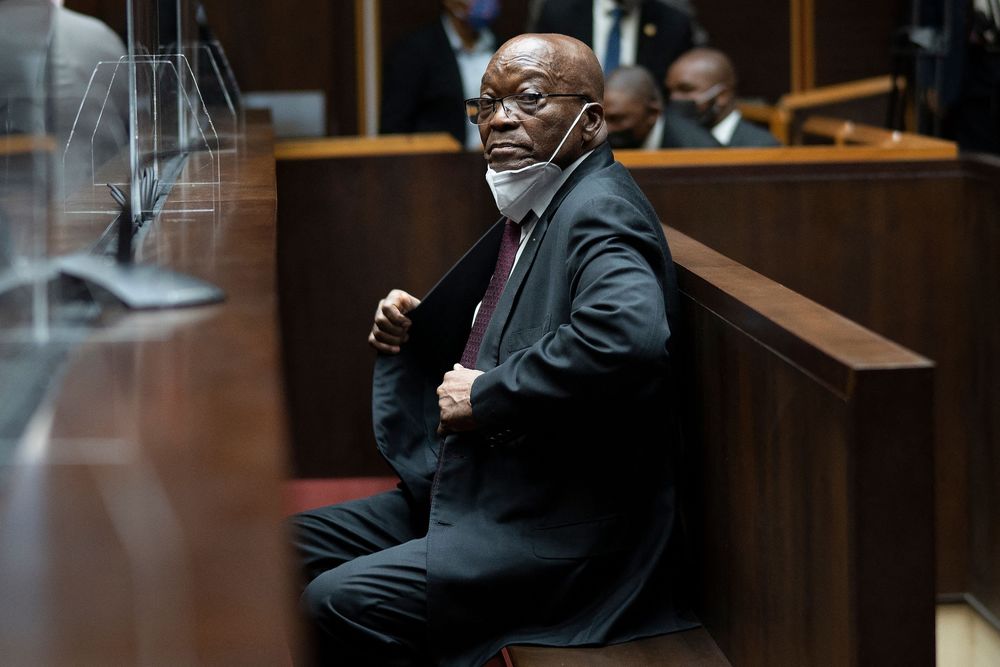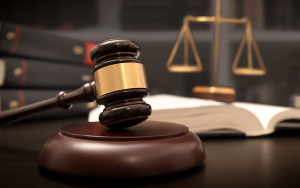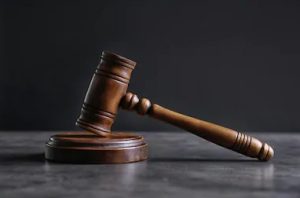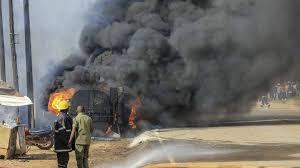South African court has ruled that the country’s former President Jacob Zuma should be returned to prison, saying his medical parole was “unlawful”.
The time he has spent out of prison should not be counted in his 15-month sentence, the Pretoria court ruled. Zuma was released on 5 September for an undisclosed medical condition.
He had been jailed for failing to attend an inquiry into corruption during his presidency.
The 79-year-old handed himself in to police in July after a public stand-off, but his jailing, unprecedented for an ex-president, sparked violent protests and looting. More than 300 people, mostly in Zuma’s stronghold of KwaZulu-Natal province, died in the protests.
The former leader had testified only once at the inquiry into what has become known as “state capture” – the allegation that government decisions were being taken on behalf of business interests through a corrupt relationship.
Zuma is also facing a separate corruption and fraud trial related to an arms deal in the late 1990s.
Zuma has repeatedly said he is the victim of a political conspiracy.
South Africa’s main opposition party, the Democratic Alliance, which was part of the legal challenge against the decision to release Zuma from prison, welcomed Wednesday’s ruling.
Prison authorities say his release on parole was compelled by a medical report, but his ailment has never been disclosed.
He did, however, undergo surgery after he was imprisoned.
Critics accuse Zuma of using ill health as an excuse to further delay a drawn-out corruption trial relating to a 1999 purchase of arms from five European firms. Deputy president at the time, Zuma is accused of pocketing bribes from French defence giant Thales and faces 16 charges of fraud, corruption and racketeering.
He has denied wrongdoing and has repeatedly claimed the justice system was hounding him for political motives.
The decision to revoke Zuma’s parole has sent shockwaves across the country, with some of his supporters threatening mass protests reminiscent of the violence in July that left hundreds dead and led to costly destruction of businesses.
But other citizens have welcomed the ruling, saying it sends a strong message that all are equal before the law.











